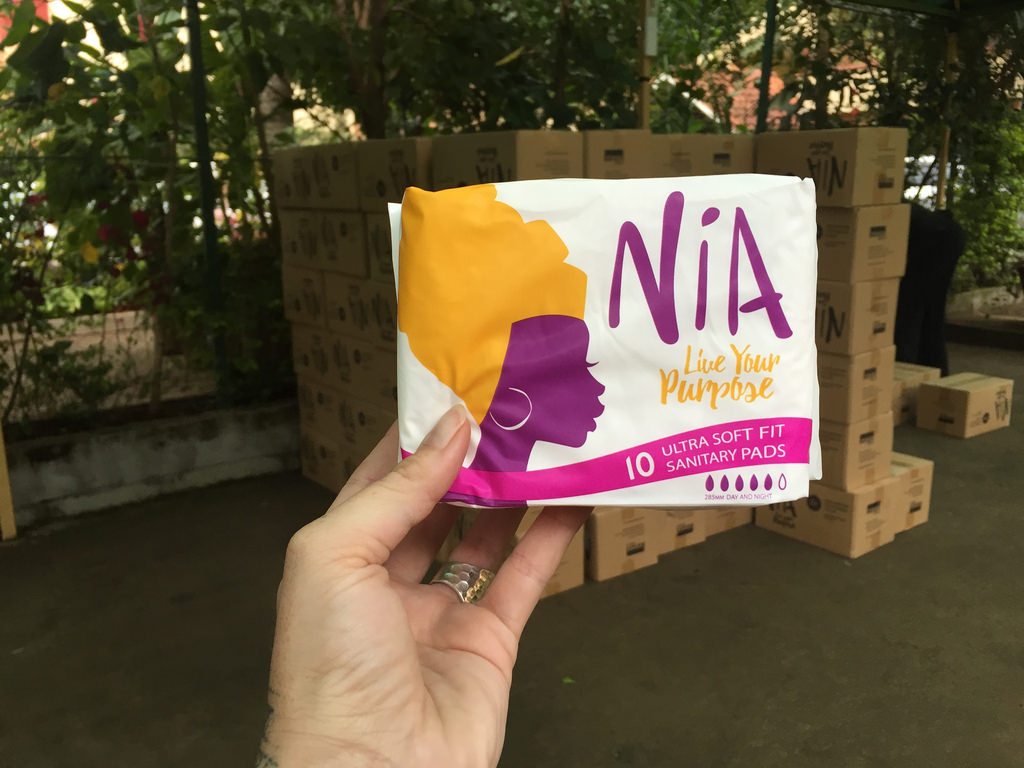“The campaign for free sanitary pads”
October 20th, 2016 The taboo on talking about menstruation has been broken, writes Chimwemwe Manyozo, 27, is a Correspondent from Lilongwe, Malawi, but he argues the conversation should not turn into an either-or debate about access to supplies that serve girls’ need for health and success.
The taboo on talking about menstruation has been broken, writes Chimwemwe Manyozo, 27, is a Correspondent from Lilongwe, Malawi, but he argues the conversation should not turn into an either-or debate about access to supplies that serve girls’ need for health and success.
Ever since I can remember, menstruation has been a topic that has not been a subject of discussion that people have had in public. Menstruation has not been one of the breakfast, lunch or dinner discussions.
Not even have I heard a husband asking a wife ‘how is your period today?’
Menstruation has a been and still is an issue that has been discussed in private mostly by females. Fathers might be involved at some point, but this rarely happens.
Males and females’ communication concerning menstruation has been through symbolism, gestures and simply guess work. A male has to read the signs and break through the jigsaw puzzle to know that a woman is going through her menstruation.
Even when your sister, wife and mother have some menstruation related illnesses, they will cook up some story that they will tell you.
Lately, the menstruation silence code has been broken, and it is now a topic of discussion in public. Not that everyone is comfortable talking about, or sees the relevance in having a conversation about menstruation, but the discussion seems to be going on.
This has mainly been attributed to the fact that women and girls drop out of school due to periods. According to the 2014 UNESCO report, Puberty Education, and Menstrual Hygiene Management, one in ten girls in Sub-Saharan Africa misses school during their menstrual cycle. Similar studies by the World Bank Group have estimated that a girl loses twenty per cent of a given school year due to their menstrual cycle, sanitation facilities and infrastructure, and cultural beliefs around menstruation.
In Malawi, poor menstrual hygiene management in schools has been shown to cause adolescent girls worry and humiliation, contribute to absenteeism and lead to poor performance in schools.
Menstruation is not only a problem with girls in schools, but also women and girls in prisons. After doing a prison monitoring exercise with the Malawi Human Rights Commission(MHRC) in 2015, one thing that came out clear was that women and girls in the prisons who were part of the monitoring exercise in three regions did not have access to sanitary pads. The sanitation facilities and infrastructure in female prisons are not friendly to women and girls.
“During menstruation we improvise! We use Chitenje mostly, or whatever we can use at that time,” said one of the female prisoners.
These problems have made people call for the improvement of sanitation facilities and infrastructure, especially in public places. There have also been calls for addressing myths and misconceptions around menstruation. Recently the calls have been for free sanitary pads in public facilities like schools, prisons, and shelters.
It remains unclear whether the free pads have to be for everyone, or for those who cannot afford to access pads due to financial problems.
In the midst of a solid campaign for free sanitary pads, another movement calling for the government to replace free condoms with free pads seems to be gaining ground on social media.
“Condoms should be sold; sanitary pads should be given for free. Sex is a choice; menstruation is not,” some say.
This sounds rather catchy, but makes me ask, why do we have free condom system almost globally, and in Malawi? If memory serves me well, I remember that free condoms were introduced among things to address HIV prevalence, and teen pregnancies that also have an impact on school drop out for those girls. Would then, the introduction of a cost on free condoms address cases of girls drop-out in schools? Condoms were also introduced to protect women and girls from catching STDs and HIV/AIDS. What happens when a cost is added to free condoms?
I believe that condoms and pads are all critical issues that need to be given their due attention. It is not a case of either free pads or free condoms. It is a case of both free pads and free condoms.
In fact, free condoms and free pads are complementary for the safety and education of girls and women. Therefore, condoms should remain free, and sanitary pads should also be free. Whether this free scheme is for all or some remains a question that is yet to be addressed.
Photo credit: The Advocacy Project Sanitary Pads! via photopin (license)
…………………………………………………………………………………………………………………
About me: I am a Malawian, working to foster human-centred development through research, training and transformational leadership.
I am the co-founder of maphunziro265, a platform created to bridge the information gap between needy students, and scholarship-providing individuals and organizations in Malawi.
I am a 2015/2016 Chevening Scholar studying for an MA Development Studies at the University of Sussex, in Brighton, United Kingdom. I earned my BA Media for Development from University of Malawi, Chancellor College.
…………………………………………………………………………………………………………………
Opinions expressed in this article are those of the author and do not necessarily represent the views of the Commonwealth Youth Programme. Articles are published in a spirit of dialogue, respect and understanding. If you disagree, why not submit a response?
To learn more about becoming a Commonwealth Correspondent please visit: http://www.yourcommonwealth.org/submit-articles/
…………………………………………………………………………………………………………………




